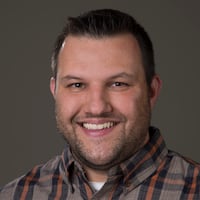>>RELATED: Different motivations lead new coaches to the same place
“When Ryan called me and we started to speak, we just talked about the possibility of me coming back to college football, what he saw me doing, but we never talked about fixing anything,” said Hafley, who coincidentally worked for outgoing Ohio State defensive coordinator Greg Schiano when Schiano was head coach at Rutgers and for the Tampa Bay Buccaneers of the NFL.
“I have a ton of respect for Coach Schiano. He's a mentor to me, and obviously you guys know I've been around him for a long time. We never got into it. And I'll never say anything bad about the defense, about the scheme because I've been on other sides of that. The new guys come in and think everything was wrong. It's not. There's a lot of right, and he did a good job on a lot of things, and I mean that.”
Hafley sounded sincere in delivering that statement, but it still came across as coach-speak given the numbers the 2018 Buckeyes posted on defense.
The 357 points and 5,648 yards are more than any Ohio State team has ever allowed. The same is true of the averages of 25.5 points and 403.4 yards per game as well as the 5.8 yards per play.
>>READ MORE: Defense falls well short of expectations
Then again, the worst defensive season in Ohio State history wasn’t the worst in the country in 2018 — nor particularly close.
The yards per game ranked 72nd, and the more important scoring average was tied for 51st.
Advanced stats tell much the same story.
The Buckeyes ranked 26th in the country according to Football Outsiders Defensive S&P+, which filter out garbage time and adjust for opponent strength.
A closer look at that metric, which combines play-by-play success rate and explosive plays allowed (much like on-base plus slugging percentage, or OPS, in baseball) finds Ohio State was much better at preventing the former than the latter.
While Ohio State was 37th in success rate, only 11 teams were worse at preventing big gains.
>>RANDOM THOUGHTS: Ryan Day’s key to success, Schiano’s shortcomings, etc.
Of course every play counts, but correcting what went wrong on 60 plays should be easier than on 600.
“I think anybody who is putting a defense together will tell you they don't want to have explosive plays,” Day said. "That will be a part of it.”
That does not obscure the fact the Buckeyes need to get better on defense to return to the College Football Playoff, but eschewing a full-scale teardown in favor of tactical tweaks could pay dividends because the latter should take much less time than the former.
Speaking of time, that is often the best solution for a problem in college athletics.
More specifically playing time.
New coaches with different ways of teaching them could help, but sometimes there’s nothing better for a college athlete than to get a year older.
What does Mike Yurcich bring to Ohio State football? https://t.co/KhCpxnEQyj
— Marcus Hartman (@marcushartman) February 13, 2019
Last season, the Ohio State defense had seven new starters, no seniors and four sophomores. That did not include redshirt freshman nickel back Shaun Wade.
This year, the Buckeyes expect nine starters to return (plus Wade), including five seniors.
There may be no sophomores, though some pushing for playing time would most likely be a good thing as every class is full of highly-rated prospects.
And that’s another aspect of all the coaching turnover: While this staff will have more experience to work with, it will also look at the roster with fresh eyes.
“Our job is to get better,” said Hafley, who will share coordinator the defense with Greg Mattison. “We certainly have to, and Coach Mattison and I will do the best we can along with the staff to make sure we do that, to get the players better fundamentally, their technique, and then we'll figure out the scheme from there.”
About the Author
